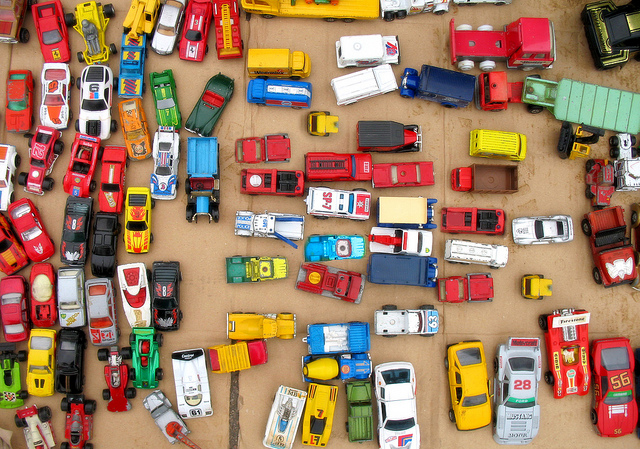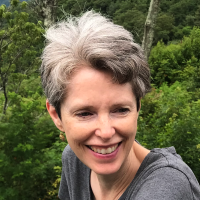While at a gathering at a friend’s home recently, the conversation turned to the topic of having too many possessions.
Everyone could relate in some way and a number of anecdotes were shared. One story in particular really stuck with me.
A woman told us about the young son of a friend who had two old Matchbox cars that he loved to play with.
From what she was saying, I got the impression that the boy’s parents couldn’t afford to buy him any new ones. Whatever the reason for the limited number, it was seen as a problem by some other adults who decided to buy him quite a few more.
When this woman visited his home she was shown his now extensive collection. However, he no longer played with any of them. He said there were too many to love.
This little boy saw no problem with having just two cars and was quite happy with them. Any apparent shortage was a story created by well-meaning grown-ups who were projecting onto him their own beliefs about incompleteness and lack…beliefs that most of us have to some degree.
Why do we believe we lack something or that we are not okay as we are?
One reason is that, in our culture, we are taught from a very young age that our feelings of anger, fear, sadness, jealously and hurt are inappropriate or too intense to express. We see the discomfort that they can cause in others so we hide them away as if they are shameful, offensive or dangerous and we assume there is something wrong with us for having felt them.
As children, we also tended to blame ourselves for whatever happens to us. If we were neglected or abused in some way—physically or emotionally—it meant that we, not the other, had done something improper.
We unconsciously create stories about ourselves—I’m not good enough, I have something wrong with me, I should be ashamed, I can never do anything right, I’m a loser or I’m unlovable—and we feel we need to search for something external to fix ourselves.
Our modern economy thrives on these stories of imperfection and inadequacy. Advertisers try to convince us to buy their products so we can be respected, worthy, successful or loved and our purchases encourage companies to continue to draw upon precious resources to provide us with even more.
How do we break free?
There is no quick or simple solution, but we can each do our part to clean up our own little corner of the world. We can honestly examine our own dark places where we feel worthless, not good enough, not loved or somehow incomplete.
We can allow our full range of emotions to be acknowledged, rather than suppressed.
This doesn’t mean that we lash out at our loved ones—or an unsuspecting driver ahead of us in traffic—when we are in a bad mood. It means that we admit that we are feeling angry or hurt or anxious or sad without trying to distract ourselves or make the feeling go away.
Even if the feeling is twenty or thirty or fifty years old, we fully allow it right now and in this allowing a healing can take place. We find more wholeness within…we find our missing peace.
I am not suggesting that we never buy anything again. I am simply making an invitation to take a closer look at the belief that there is something inherently wrong with us each of us that some external object will fix. It is this belief, multiplied billions of times and in varying degrees, that has led us to the environmental crisis we are in today.
What if we were able to make more conscious choices about what we truly want and need in our lives…choices that aren’t based on a sense of imperfection or incompleteness?
What if we could use what we already have until it wears out? What if we didn’t need to have the latest and greatest while perfectly good ends up in the landfill? What if we didn’t require a television in every room or the newest and fastest smart phone to keep us distracted from what we don’t want to feel?
Imagine what the world would be like if enough of us became free of our belief that there is something amiss inside of us. I like to think that our planet would be a happier place with relationships valued over possessions.
We would connect with our fellow humans rather than turn away because, in the allowing of our own emotions, we would find the ability to be more present with that full spectrum in others allowing them, in turn, to be more present to and accepting of their own uncomfortable feelings.
This ability to be totally present is more valuable than any new gadget or toy and one of the greatest, most healing, gifts we can give to ourselves, to others, to the next generation and to this earth we call home.
Relephant read:
On Being Good Enough.
Apprentice Editor: Lois Person / Editor: Sara Kärpänen
Image: Caroline / Flicrk









Read 2 comments and reply